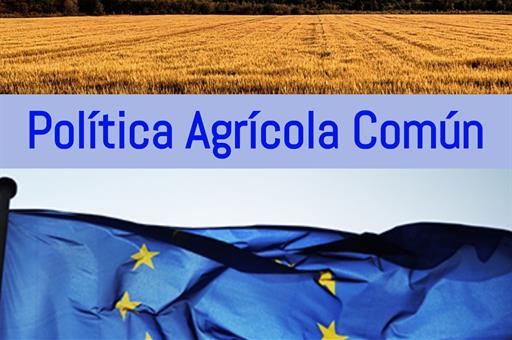European Union (EU) Agriculture and Fisheries Council
Luis Planas calls for agreement to be reached on CAP in autumn so that States can finish designing their strategic plans
News - 2020.7.20
Luis Planas attended the European Union (EU) Agriculture and Fisheries Council, the first such meeting under the German Presidency. The meeting coincided with the extension, for the fourth consecutive day, of the holding of the European Council, "which is very important for the EU, particularly regarding agriculture and rural development", stated the minister, who also expressed his confidence in that "this could be a good base for the CAP that we are discussing".
The minister conveyed the vision of the Government of Spain about the green architecture of the CAP and the "Farm to fork" strategy, and addressed the situation of the markets.
Spain advocates greater ambition on climate and the environment in the CAP. It shares the goal of the German Rotating Presidency of the EU that it is necessary to reach a partial general agreement at October's Agriculture and Fisheries Council.
Luis Planas highlighted that in order to make progress on designing national strategic plans, the CAP must have the instruments necessary to guarantee a just transition so that crop and livestock farmers employ a new productive model.
Possible agreement on CAP in October
As regards the possibility of reaching an agreement in October, the minister stressed that Spain is in a position to implement its strategic plan at the start of 2021, to officially present it midway through the year and come into force in 2023. Meanwhile, in 2021 and 2022, the CAP will continue to be implemented in the same way, albeit with new budgets.
Luis Planas called for progress to be made as quickly as possible on the "Farm to fork" strategy to include its goals in the national strategic plan of the CAP. He called for time, a budget and flexibility so that producers can perceive the change as an opportunity and not as a threat.
He was resolute in stating that "if we, as Europeans, adopt stricter rules on crop and livestock production, we will have to apply similar rules for the import of products from third countries".
Furthermore, he commented that those who make a major effort to adopt new forms of production, which are increasingly more respectful of the environment, must receive a fair price. This is the aim of the Government of Spain, which is working on a draft bill to amend the Food Chain Act to strengthen the negotiating position of crop and livestock farmers.
As regards the situation of the markets, the minister called for the swift entry into force of Article 167 of the Common Markets Organisation (CMO) for agricultural products for olive oil with the aim of national legislation incorporating this measure for the next campaign.
The minister recalled the uncertainty in the sector regarding customs duties imposed by the United States and that in mid-August the specific measures will be announced. He conveyed to the European Commission the need to step up diplomatic efforts to normalise trade relations with the United States and avoid the imposition of customs duties.
As regards the wine sector, he called for an increase in funding for the Programme to Support the Spanish Wine Sector (Spanish acronym: PASVE) to offset the extraordinary costs faced in 2020 due to the effects of COVID-19.
He also called for extraordinary support measures for the plum sector, which has seen exports affected by the unilateral change of Brazil on phytosanitary conditions applicable to the import of this Spanish fruit.
Non official translation





